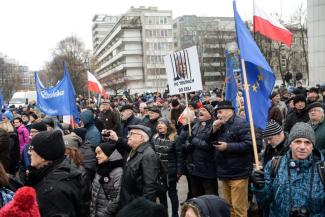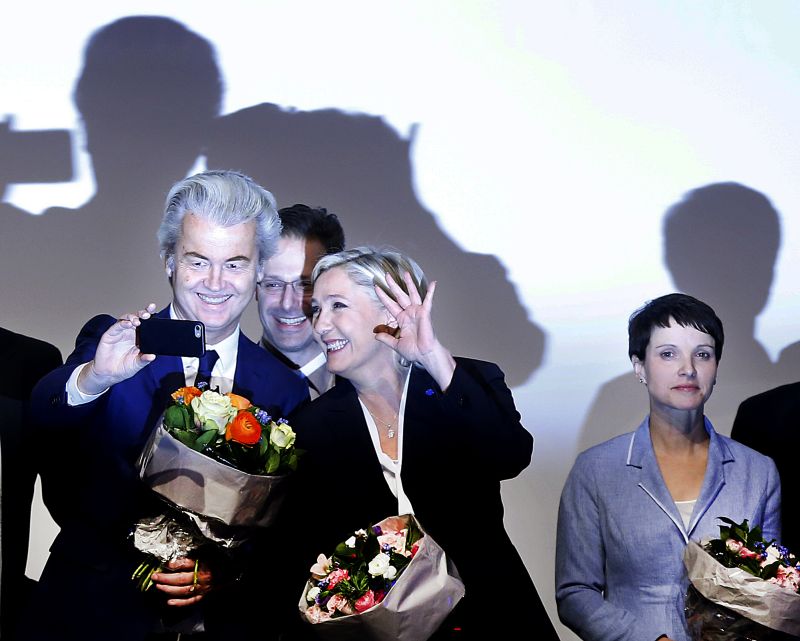Europe
Right-wing populists in the EU

In Austria, the Freedom Party of Austria (FPÖ) hoped to benefit from the “Trump effect” in the final round of presidential elections held in December 2016. However, FPÖ candidate Norbert Hofer was defeated by Alexander Van der Bellen, the former head of the Greens. Nevertheless, polls show that the FPÖ maintains a steady hold on a good third of the votes, meaning that it could emerge as the strongest party in the next parliamentary elections.
The “Swiss People’s Party” of millionaire Christoph Blocher has been the strongest party in Switzerland for some time. It has had a significant impact on policy through its use of referendums. In recent years, for instance, popular initiatives have prevented less-demanding naturalisation procedures for the children of immigrants, made it easier to expel foreigners who have committed crimes and enacted a ban on building minarets.
The party’s 2014 campaign against what it termed “mass immigration” went so far as to challenge free movement within the EU. The corresponding referendum was accepted by a majority of voters. This result puts the Swiss government in an impossible position. It wants to keep the country in the European Single Market, but the free movement of persons is a condition of access.
The “Danish People’s Party” has a similarly enormous influence on its country’s politics. Since June 2015, it has been propping up a conservative-liberal minority government, playing the same role it did in the ten-year period from 2001 to 2011. It exerts maximum pressure on issues like migration and refugee policy, but it bears no direct responsibility.
In Finland, the “True Finns” have governed together with the conservative Centre Party since 2015. In Norway, the right-wing populist “Progress Party” first became part of a conservative coalition in 2013.
The influence of right-wing populists is even stronger in Eastern Europe. In Poland, the national-conservative “Law and Justice” party began to claim control over the judicial system and the media immediately after its landslide victory in the fall of 2015. It is following the example of Hungary’s autocratic Prime Minister Viktor Orbán, who has worked for years to restrict democratic culture in his country. When it comes to refugee policy, Poland and Hungary have led a group of eastern European countries that rejected a joint European humanitarian solution and has been lobbying for national isolationism since 2015 (see article).









